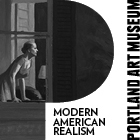
|
||
|
Portland art blog + news + exhibition reviews + galleries + contemporary northwest art
|
||
Discussion Links Christopher Knight pens the much anticipated rebuttal to all the Whitney love. Well, the cries of parochialism are a given though Knight celebrates the exclusion of Greenbergian Color Field painters like Morris Louis and Helen Frankenthaler... but really is it just substituting one parochialism for another? That's ok, one can come to Portland to see Frankenthaler, Anne Truitt and other Greenberg artists here at the Portland Art Museum, where the critic's personal collection now resides. What's more, the Whitney did just restage a great Robert Irwin last year so I'm not certain they are as guilty as Knight's still legitimate argument seems to present. Perhaps a museum's identity comes chiefly from a permanent collection, so the Whitney will still be able to play against of their expected New York focus as they years roll by. Still, for the first show they had to play the NYC card since they are in competition with MoMA as the NYC art museum. Frankly, I look forward to the LACMA expansion's LA style rebuttal. That is one of the nice things about being here in Portland, we make no claims to being an art capital but sitting out the cola wars style museum wars gives us a kind of Switzerland position (which is its own kind of parochialism). The more I think about it... parochialism that is self aware isn't necessarily the slur it is intended to be as long as the program learns to curate against form enough to keep it feeling vital.
We seldom hear from Michael Craig Martin in the USA but this interview in the Guardian gives insight into how the British addressed Warhol and eventually birthed the Britpop/YBA phenomenon. Those details... some might call "parochialism" could also be seen as the reason the British ruled the late 90's and early aughts. What is missing in Chinese art? I doubt it is missing anything but when an Chinese artist is willing to broach the idea it is worth exploring. The latest Rothko book looks like a dip in the shallow end of the pool (behind a paywall). Portland's most famous son was deeply enmeshed in the city's Jewish intellectual community... so much so that the thread ran throughout his life but just focusing on his very strong ethnic identity misses the fact that Rothko was a nonconformist in most everything he did... making any single faceted approach to his biography doomed to failure. Posted by Jeff Jahn on April 27, 2015 at 13:51 | Comments (0) Comments Post a comment Thanks for signing in, . Now you can comment. (sign out)
(If you haven't left a comment here before, you may need to be approved by
the site owner before your comment will appear. Until then, it won't appear
on the entry. Thanks for waiting.)
|
| s p o n s o r s |
 |
 |
 |
 |
 |
 |
 |
 |
 |
 |
 |
 |
 |
 |
 |
 |

|
Site Design: Jennifer Armbrust | • | Site Development: Philippe Blanc & Katherine Bovee | |

